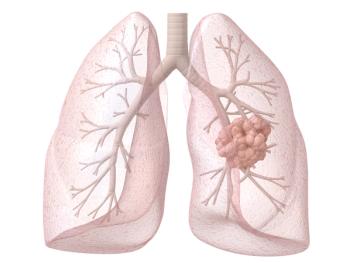
Michael Kim, MD, Discusses Study on Mutant p53 and Oncogenic KRAS in Pancreatic Cancer
The MD Anderson expert discussed the main takeaway from the data published during the virtual AACR Annual Meeting, while looking forward to what comes next with these genetic drivers.
Michael Kim, MD, from The University of Texas MD Anderson Cancer Center, spoke with CancerNetwork about the main takeaways and potential action regarding mutant p53 and oncogenic KRAS in pancreatic cancer to be taken from his research presented at the virtual AACR Annual Meeting.
Transcription:
Targeting genetic drivers of cancer has proven to be very successful. For example, in melanoma and in certain types of hematopoietic malignancies (leukemias and GI stromal tumors), we know that targeting genetic drivers can be very effective. But we don't have any therapies that target oncogenic KRAS that's prevalent in pancreatic cancer. And we have no therapies that target mutant p53. Since these are the heart and brain of pancreatic cancer, we need to find novel ways to target these. One way is to identify how they work together and attack that cooperative signaling node somewhat like dividing and conquering.
So, if we can disentangle or decouple oncogenic KRAS from mutant p53, our hope is that we can prevent or highly disrupt metastasis. And then we can use other targeted, or potentially immunotherapies, to kill the actual tumor cells. So, it's really kind of identifying CREB1 is the link between oncogenic KRAS effectors and mutant p53 gain of function. And then using other drugs in our armamentarium to target the tumor cells themselves.
Newsletter
Stay up to date on recent advances in the multidisciplinary approach to cancer.












































